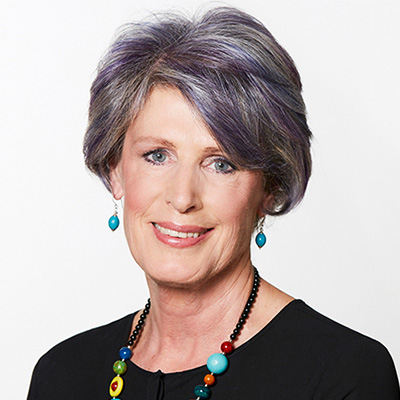
Getting divorced? “Get a proper lawyer, my friends said”.
I’m a collaborative lawyer, and I agree that if you are going to have a lawyer in your divorce, go for proper.
A proper lawyer will:
• listen to you
• learn from you about how you and your ex have dealt with power and conflict in the past
• make sure you are safe, physically and emotionally
• speak up for what is important to you
• look at the reality of your case and help you decide if you are likely to do better in negotiation or litigation
• help you to understand what “do better” might mean
• make sure you have all of the information and time needed to make good decisions
• make sure all the financial information is on the table
• help you to understand which parts of your worries have a legal solution
• talk to you about compromise
• help you to decide when to let go and when to hold on
• tell you that win-win never really happens, and suggest that you think more along the lines of lose-a little/lose-a-little
• help you to understand that in court, the day never comes when you get to stand up and tell the judge your story, and if you do get to speak, what you think is important, a judge may not
• get you the help you need to sort out what part of your ambitions for the end result are driven by emotion, and what parts are driven by logic
• get you the help you need to really understand the here and now of any proposal or offer, as well as what that is going to mean or look like in a few years’ time
• get you the help to make sure your kids are like the majority of kids, and are doing well a year or so after your divorce
• help you to believe that one day this will hurt less, and one day you will feel less angry or sad
• care about you and your family
• work with your ex’s lawyer to make the best of the situation, or advise you if that isn’t realistic
• put you in charge, but making sure you have the information and confidence to be in charge
Oh, I see. Maybe you meant a “proper” lawyer?
One who will:
• fight tooth and nail for you even if it doesn’t make sense?
• write tough, threatening letters to your ex’s lawyer; the “so there”! letter you so badly want to see on letterhead
• talk tough about what a #$@& your ex is or must be
• not challenge what you say
• tell you war stories of other cases they have won against #$@& exes just like yours
• suggest that your ex is untrustworthy
• suggest that your ex didn’t contribute as much as you
• tell you that the judge is definitely going to “know” who should win (you, of course)
• side with you through every part of your story
• be dismissive of namby pamby lawyers who negotiate for a living
• charge a lot because they are “the best”
And you can get one of those lawyers easily enough. I can give you a list.
And, with complete honesty, however awful this approach is, there are times when it is the only thing to do. But that is rare. Very rare.
Yes, tough talking lawyers cost a huge amount of money. Yes, you’ll get bragging rights for having the meanest lawyer around. Yes, they will have an impressive office. Yes, they will tell you subtly or not so subtly that they are “at the top of the game”. Yes, they will know and use the toughest forensic accountant, psychologist, child psychologist or valuer, in town.
And maybe this is all OK because they are the kind of proper lawyer that your friends and family will approve of? And it is fair to say that what our friends and family say is actually important for most of us.
But your friends and family didn’t live your marriage, and they won’t live your future. They won’t live the fall-out of your divorce in the same way you will. And nor will they live the legal costs and the increased conflict and distress that are the inevitable result of tough talk.
Remember that your friends and family probably feel as helpless as you do, or as you have done at times. They are trying to help you, and this is what they imagine is the best advice. To them, it can feel more useful than standing to one side watching your pain. It can sound very much like a decisive, certain, empowering fix, this idea of you and your lawyer talking tough.
What your friends and family do not know is that you might find that:
• you spend two years in the legal system and end up in court
• you grow so tired of it all that you will just want it all to go away
• the cost is so much higher than you ever believed possible
• none of the court officers or judges seem all that impressed by your “unique” situation
• court is unpredictable
• you will have to make big decisions about your kids and/or future finances under pressure – most likely at court
• your lawyer starts to back-pedal or waiver in confidence about their initial advice
• evidence and information will come to light along the way that may mean you have to drastically change course
• you’ll probably dislike your ex more than ever
• you will probably blame your ex more as life with an aggressive lawyer rolls on
• your lawyer may turn their aggression on you if you question the way your case is being run or how much it is costing
• your “big shot” lawyer will hand over a lot of the running of your case to a more junior lawyer
• the promises and the reality just won’t match up
• that hidden asset couldn’t be found
• that asset that you ought to share isn’t up for sharing because of a technicality
• your kids get drawn into the conflict no matter how hard you try to stop it from happening
• you feel powerless to stop the court case, or you are told it is too risky because you might have to pay your ex’s costs
• you don’t understand why you sat for hours in a room at court alone or with your lawyer
• you don’t understand why your lawyer and barrister seem to be joking and having a laugh with your ex’s lawyer and barrister, while you feel totally anxious and stressed out
And what I know after more than thirty plus years in the divorce game, both as a litigator and collaborative lawyer and mediator, is that there are no stats to show that tough talking lawyers get better outcomes than peace-making lawyers. But I do know that being at the Family Court causes damage to families and let’s be honest about it – it is war, it comes at a cost, and everyone (your lawyer included) is glad when it is over.
Your tough-talking lawyer will tell you that you won your case, whether that is plain fact, or “in the circumstances” or “considering the judge we had” or “considering the behaviour of your ex” or “the behaviour of the other lawyer”. Or you will be told, if you didn’t win your case, that you would have done worse with any other lawyer, or in any other system.
So yes, by all means, do get yourself a proper lawyer. A proper peacemaking, collaborative, co-operative lawyer. One who’ll save you money, look out for your wellbeing, help you to reach decisions you can live with, to know which ones you can’t, and have the wisdom to know the difference.

About The Author - Smart Separation.
It is my passion to challenge traditional thinking about divorce, to see common sense prevail so that divorce is separated from ‘the law’ and outside of courts. Apart from mediation and collaboration being my daily bread, as a practitioner and a trainer, I aim to change the world. A little. If you are keen to learn more about reaching an amicable settlement, please call 1800 960 064 for more information or an appointment.
